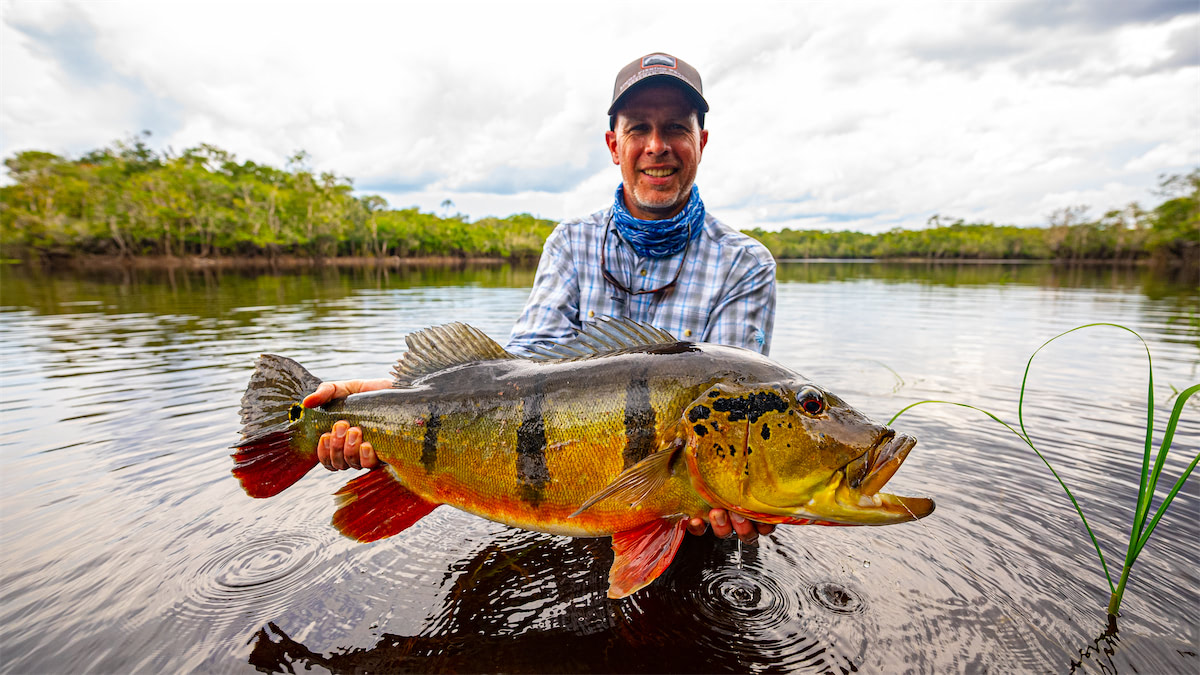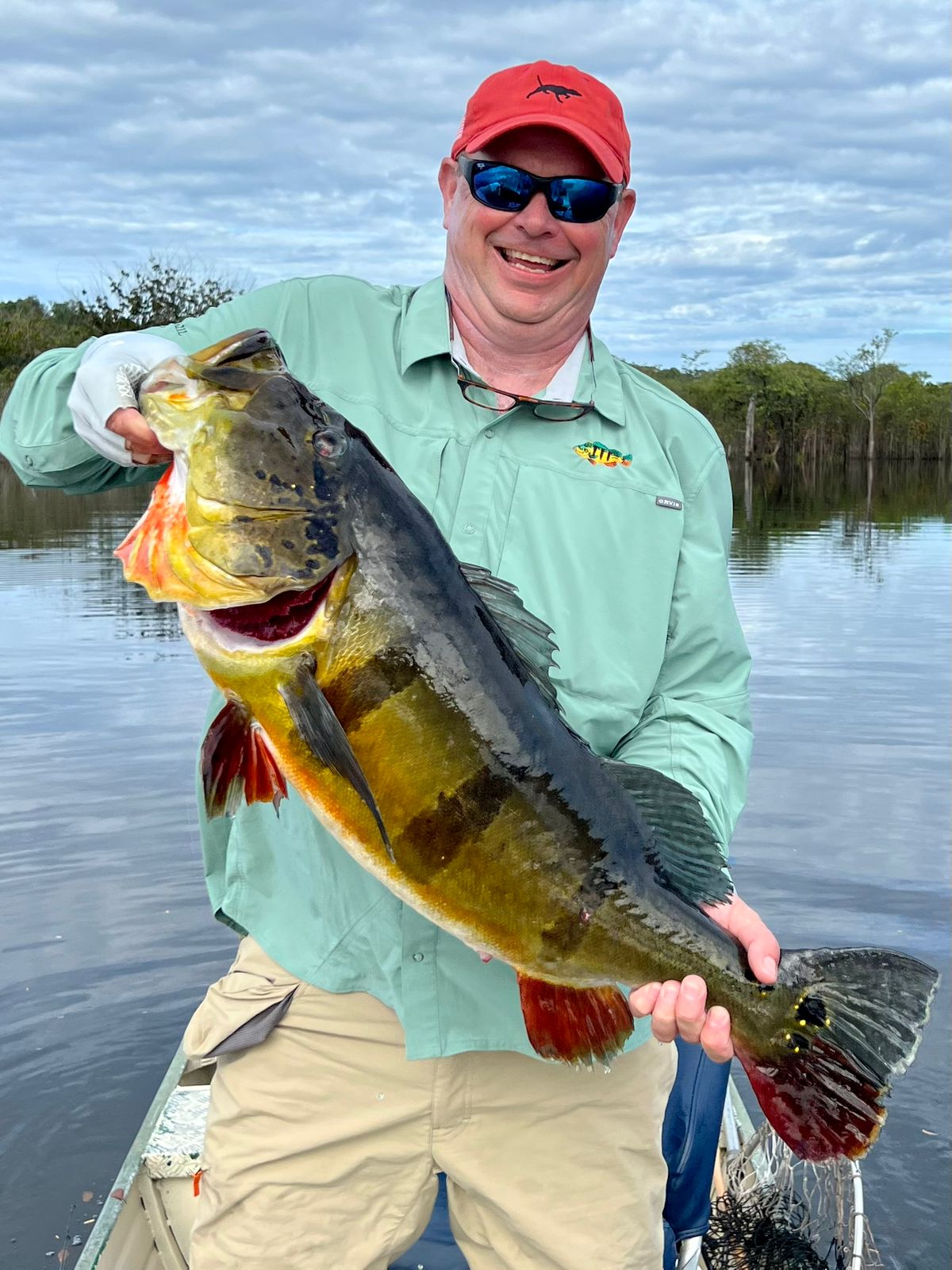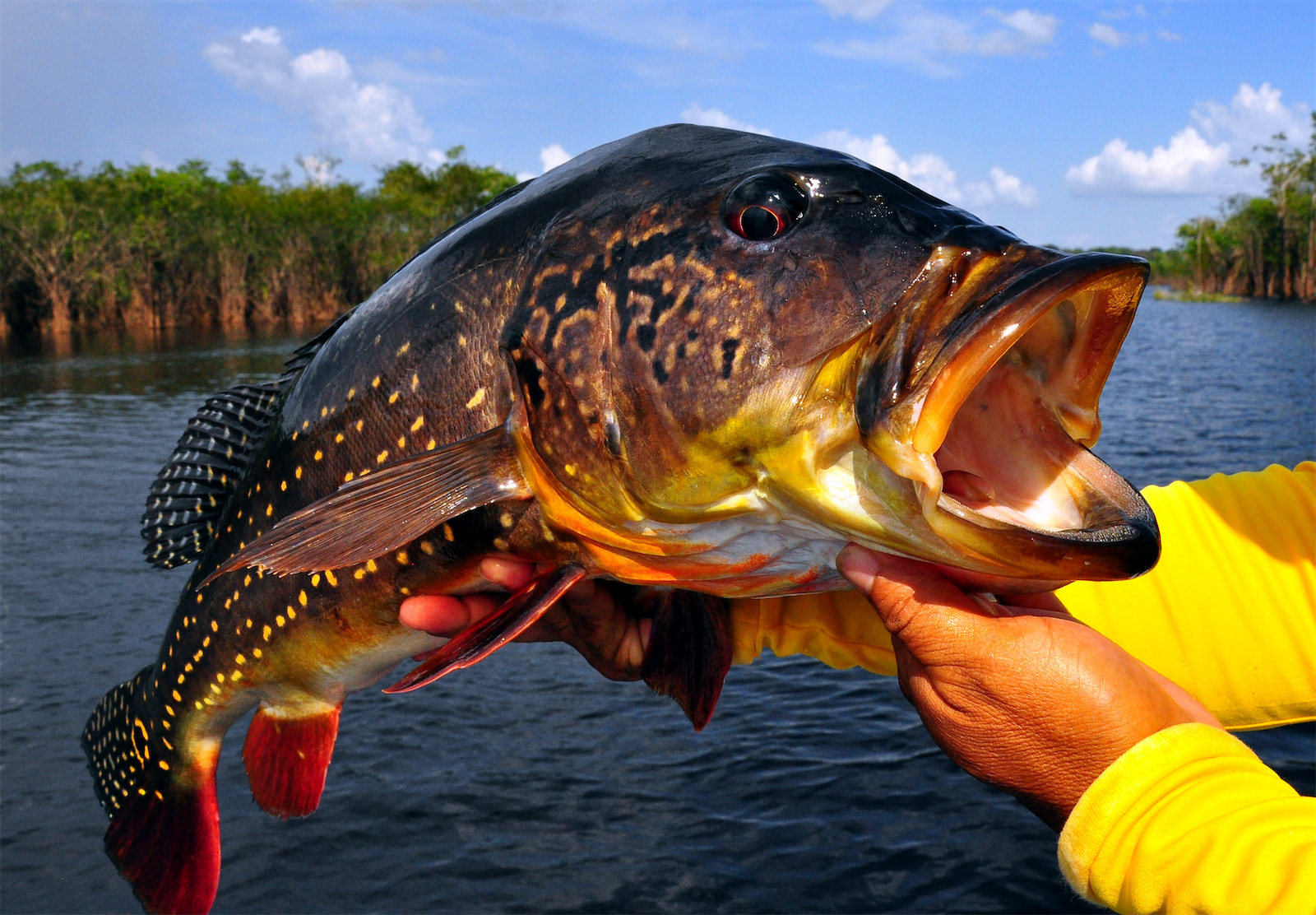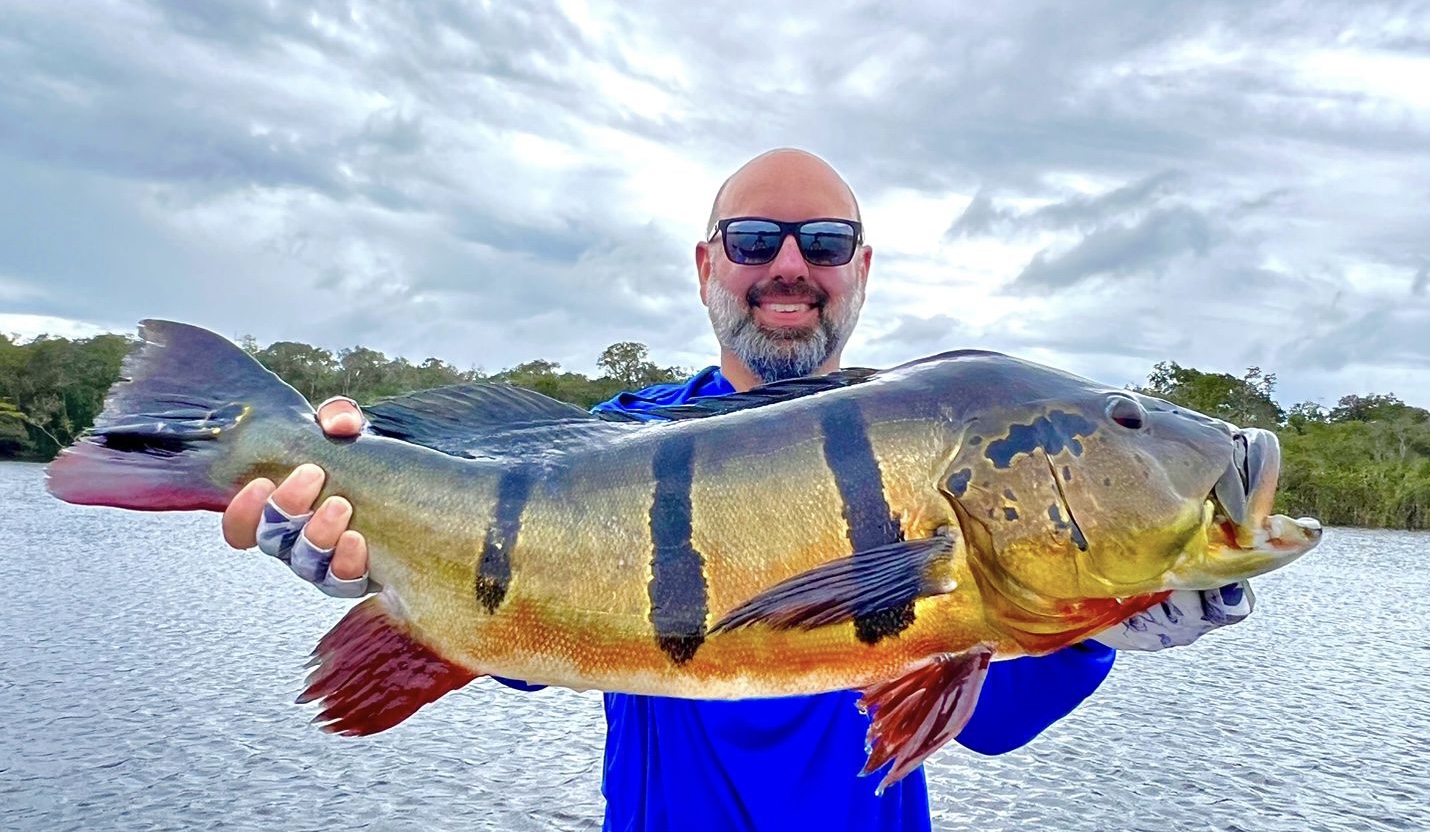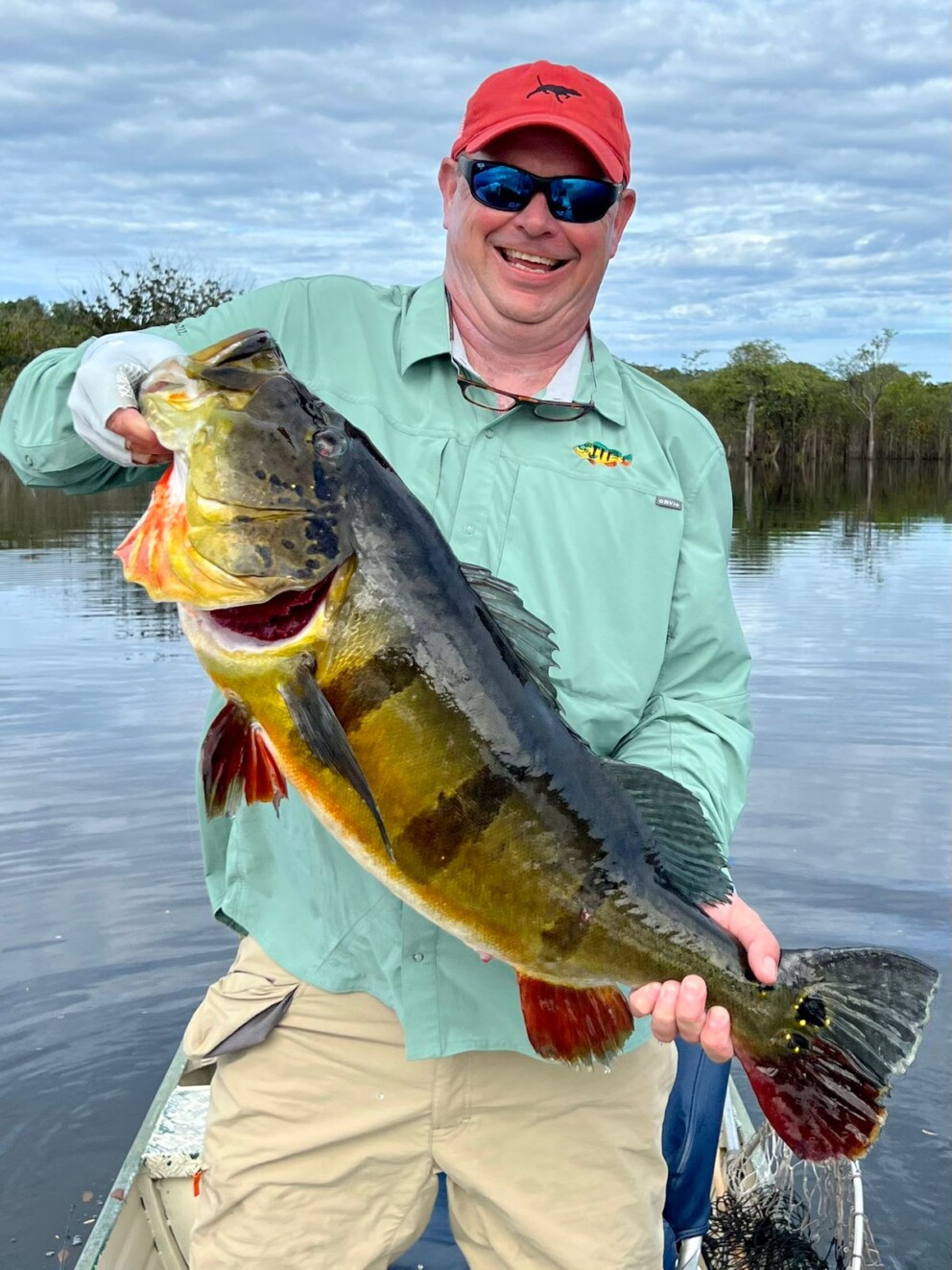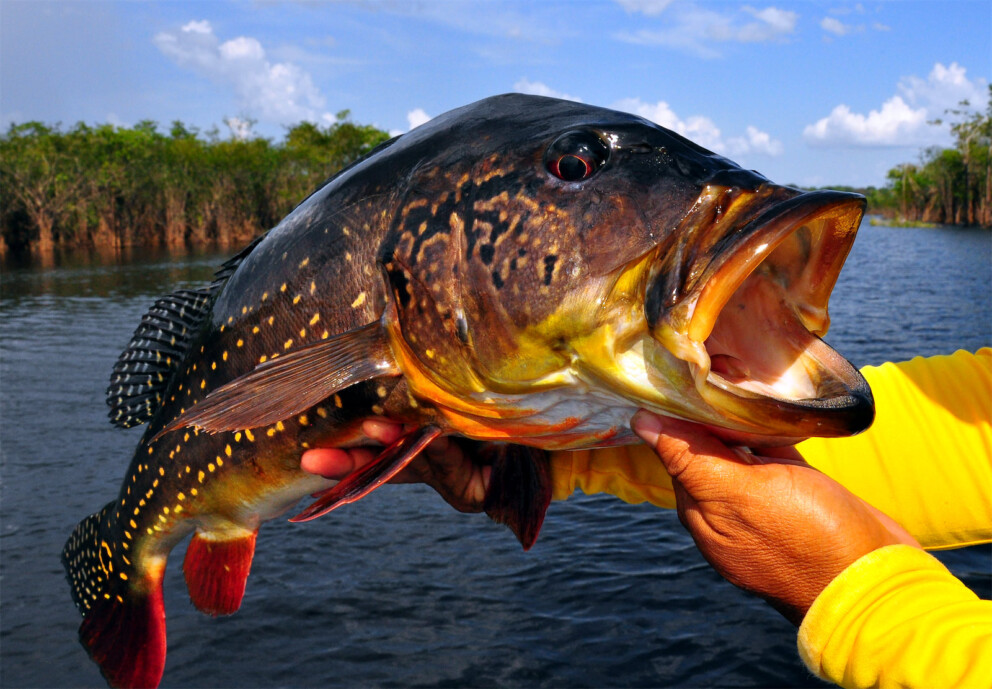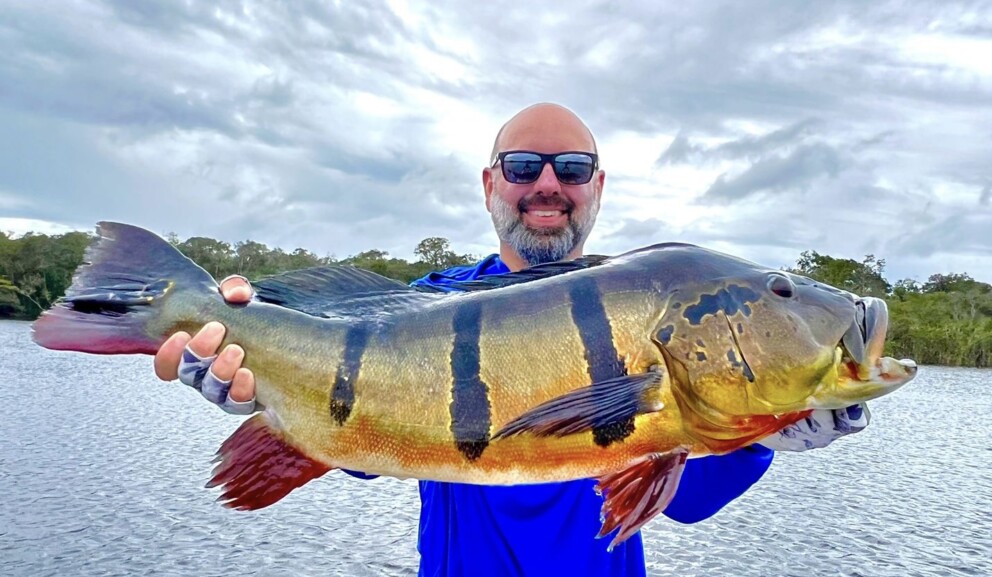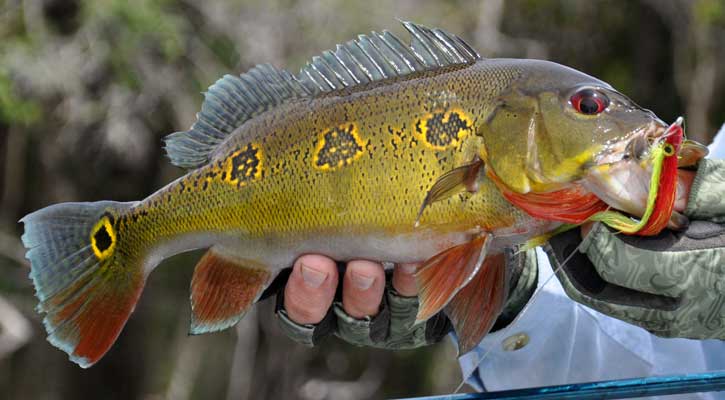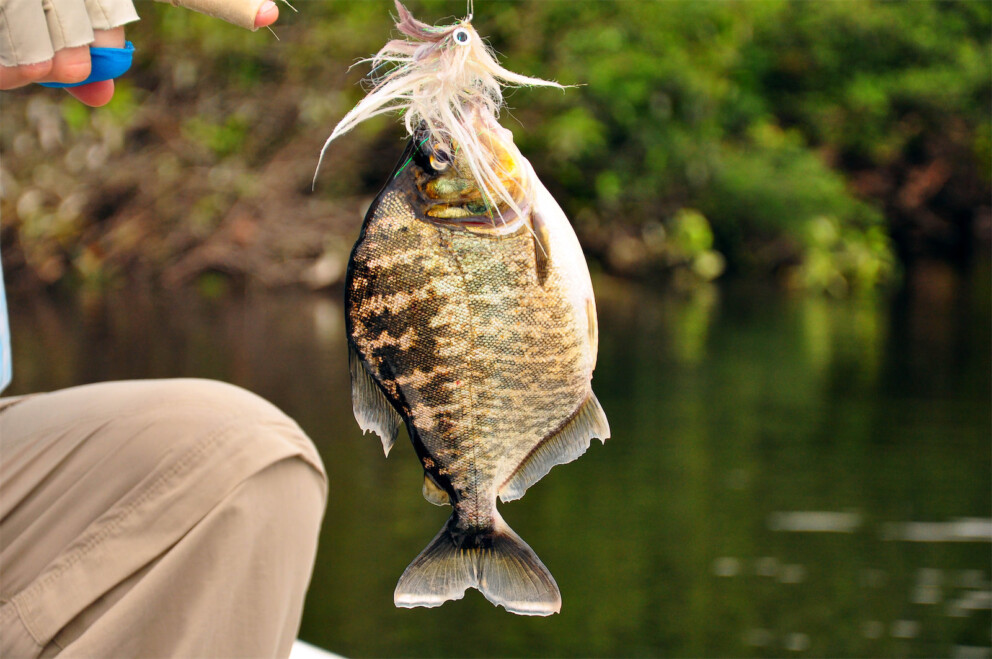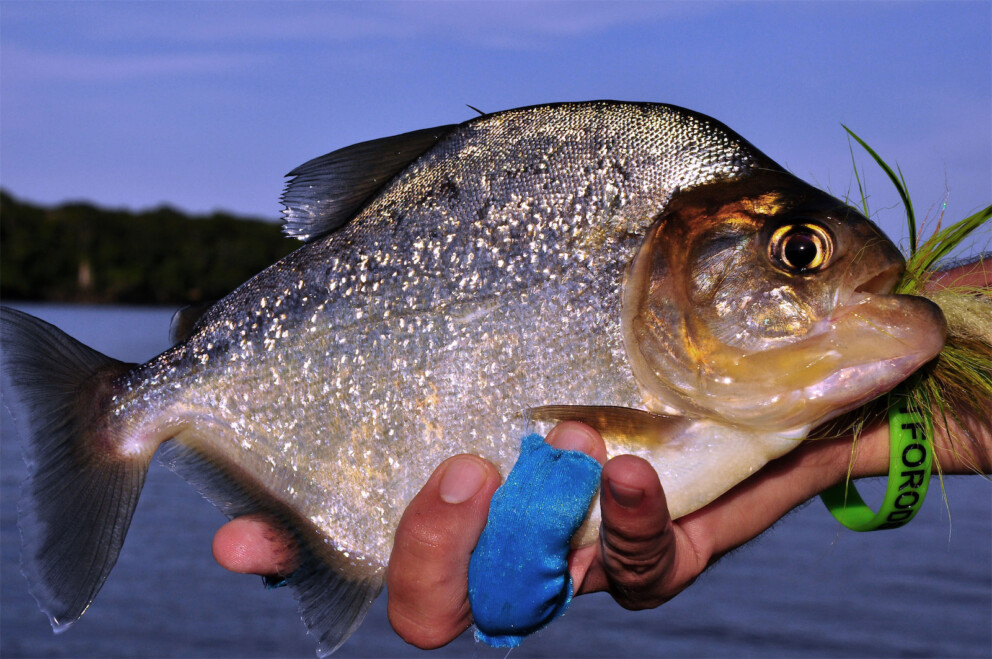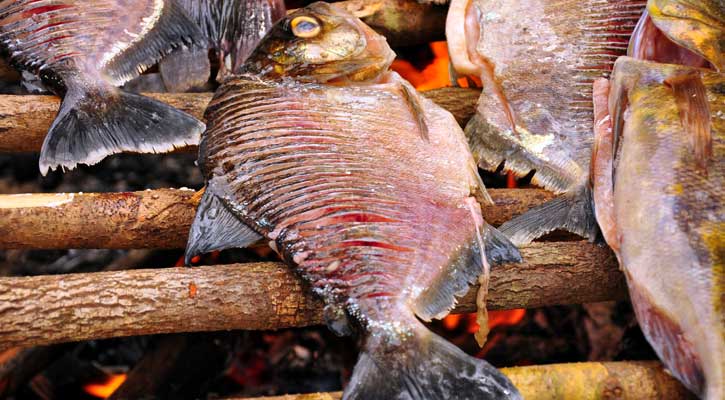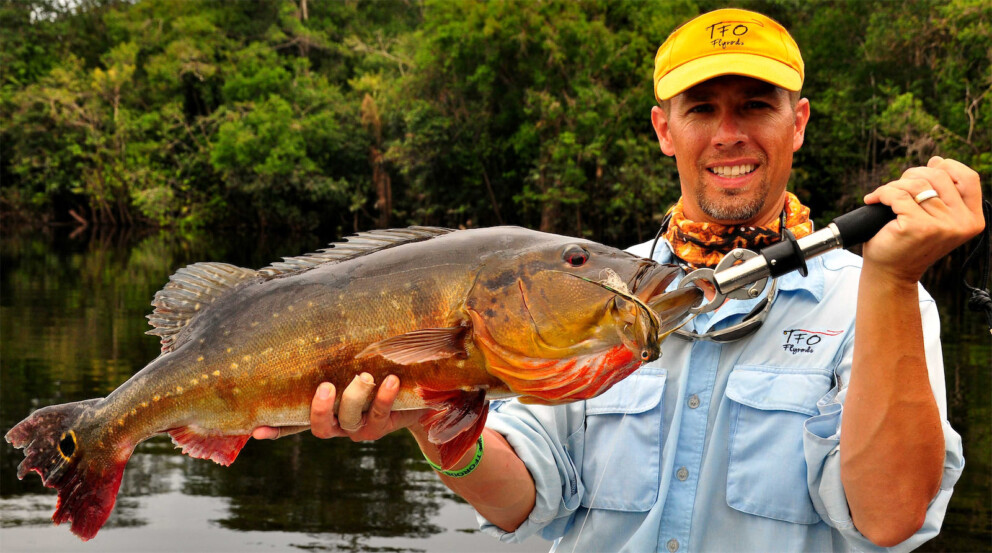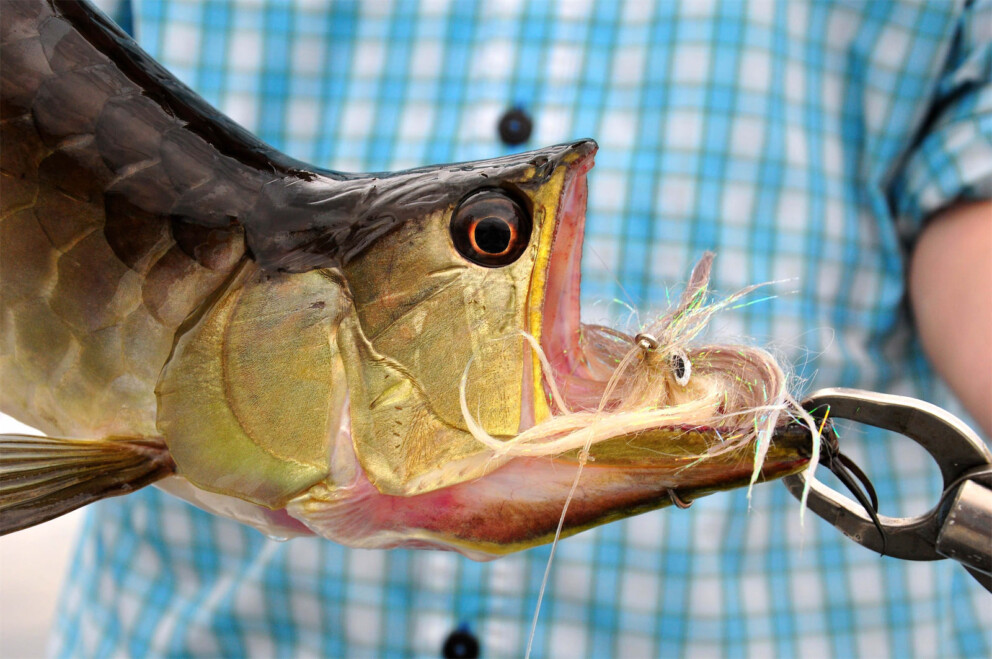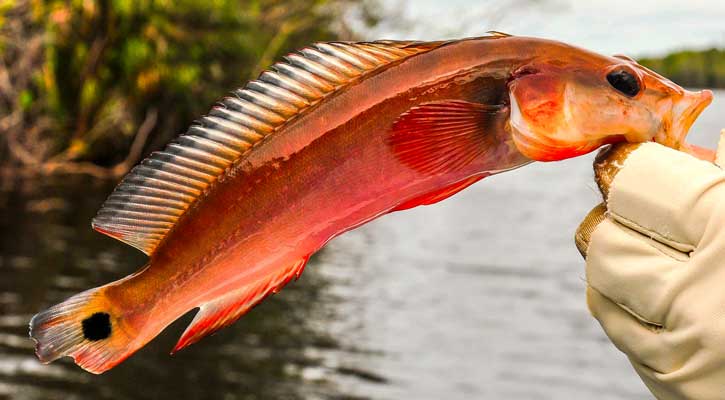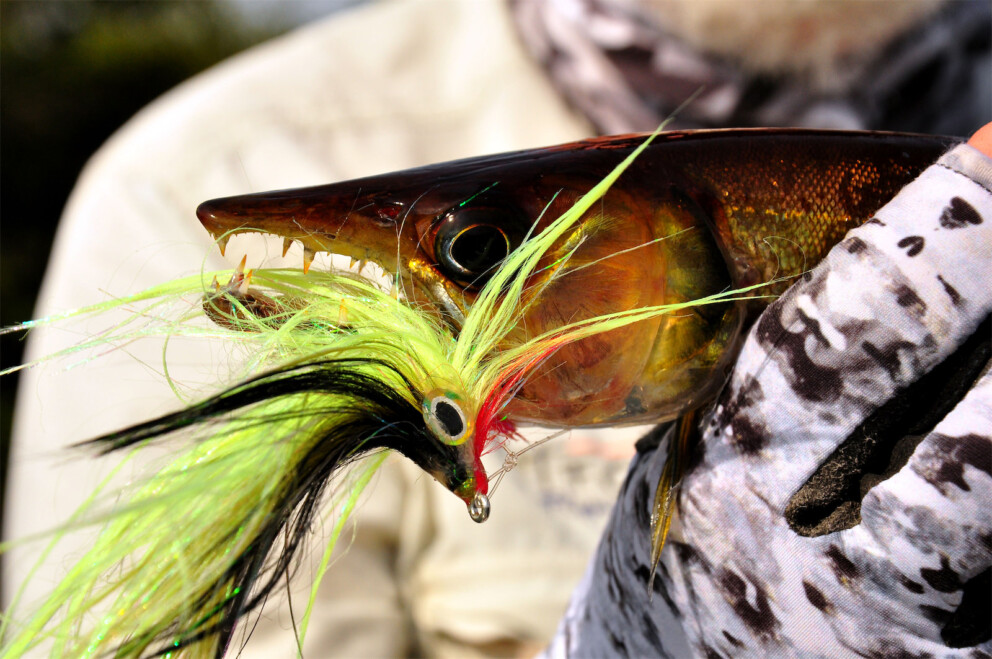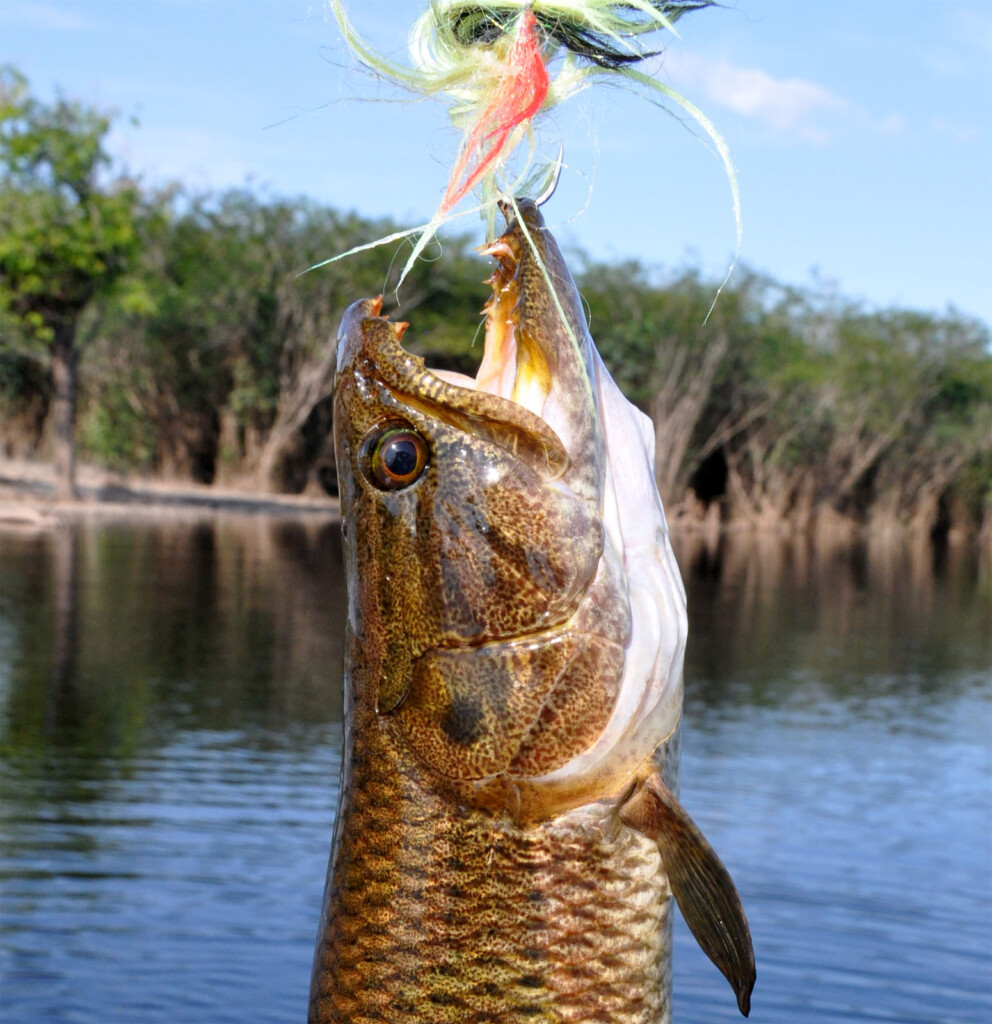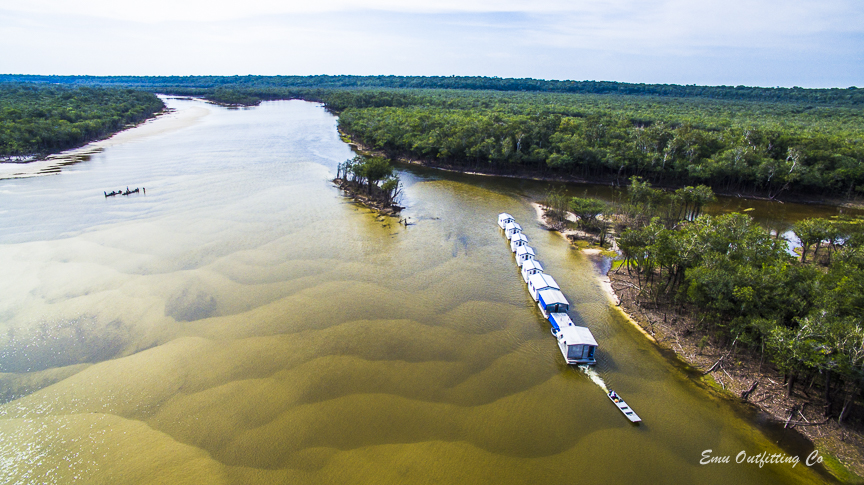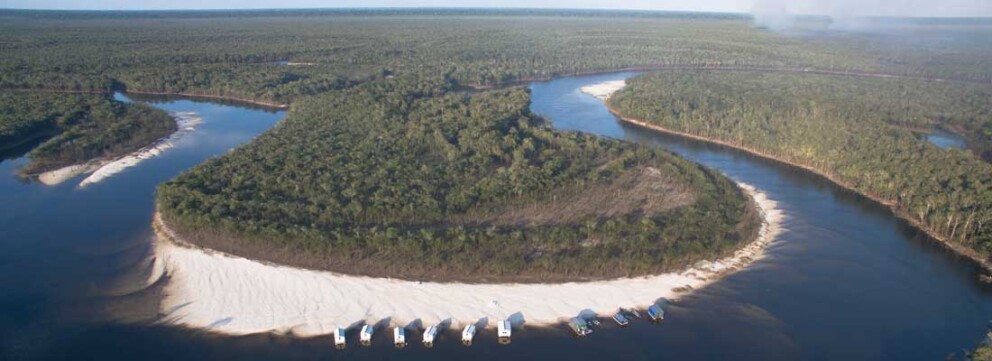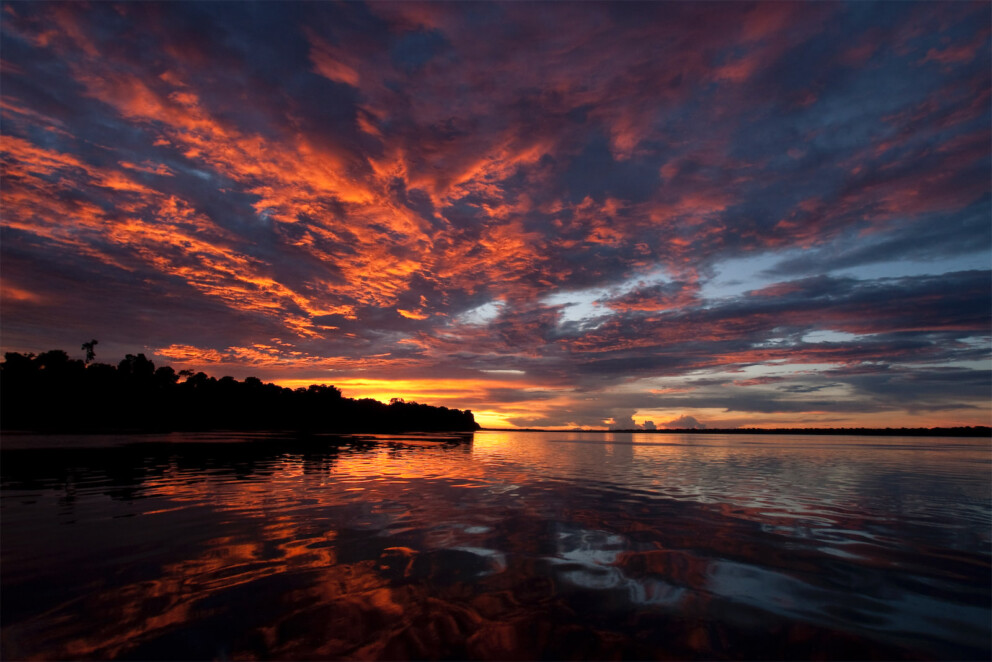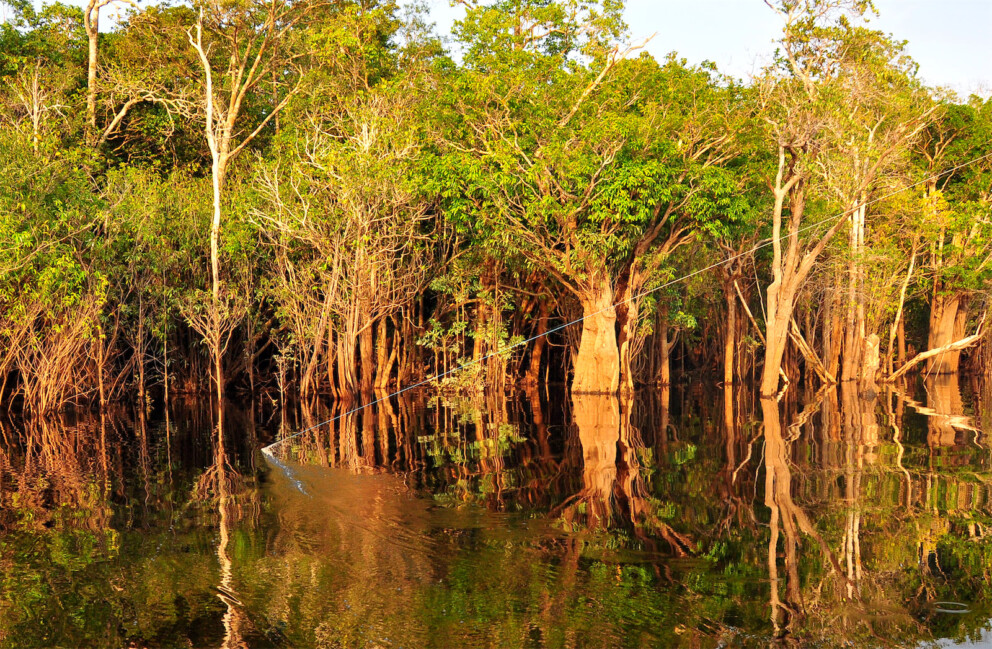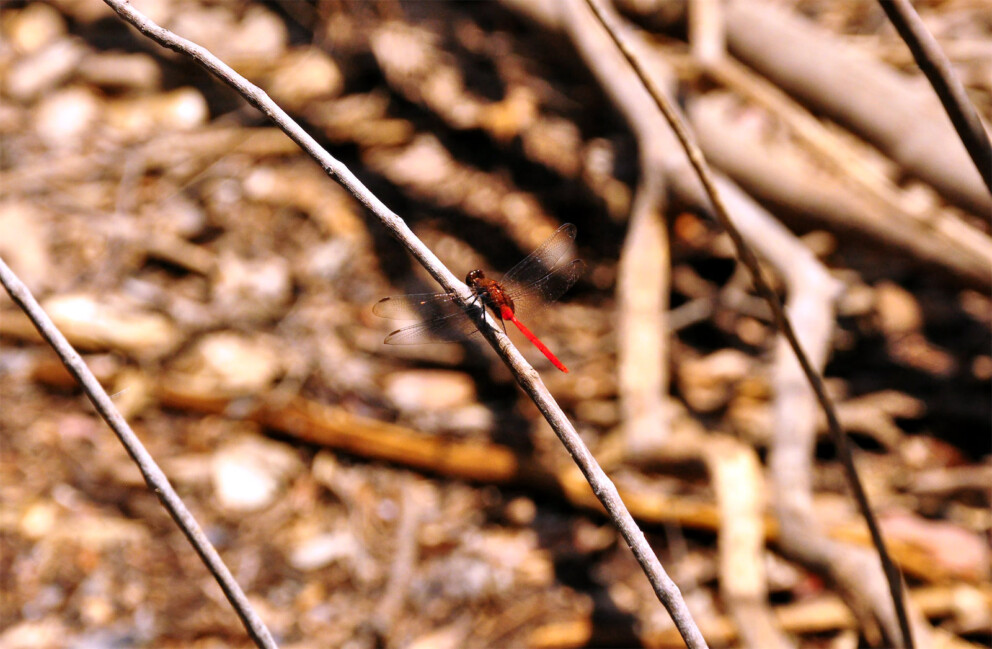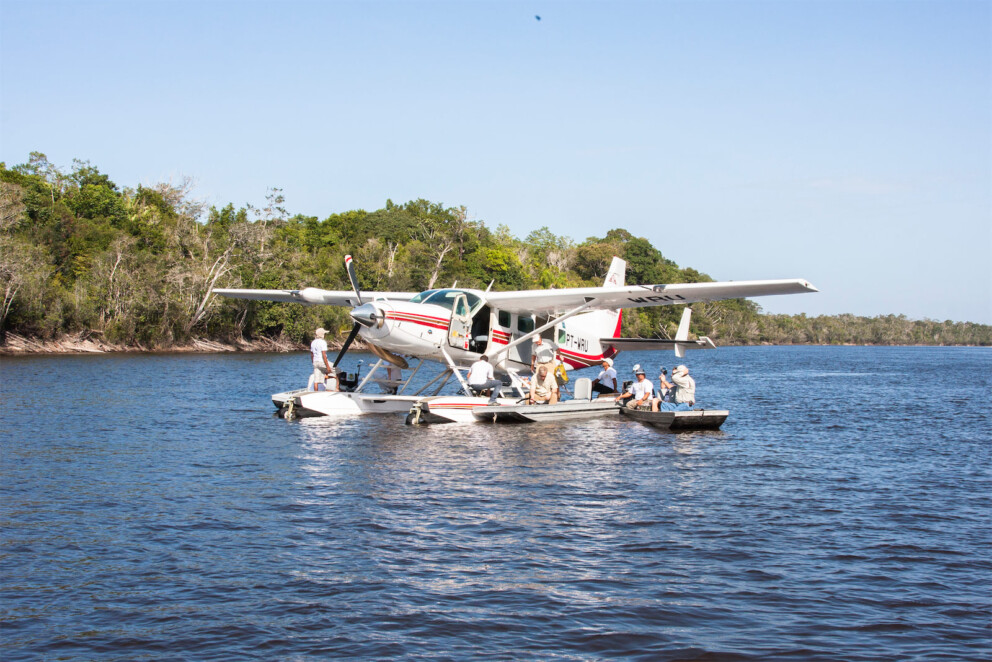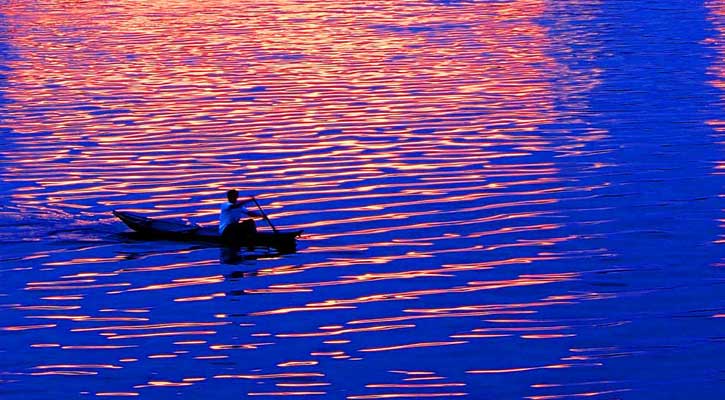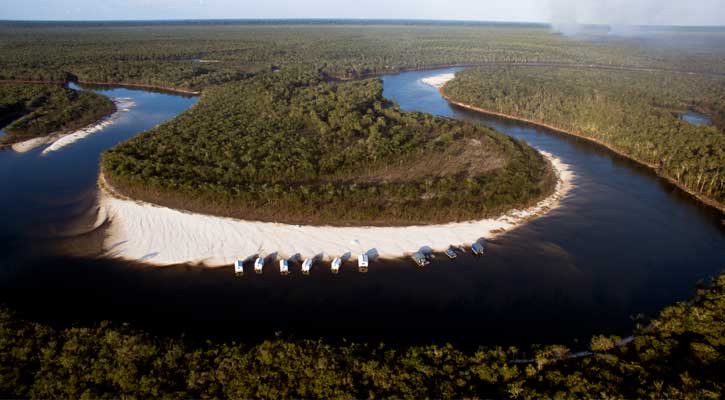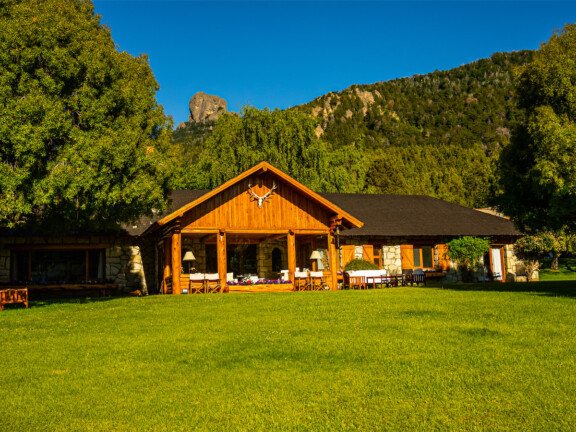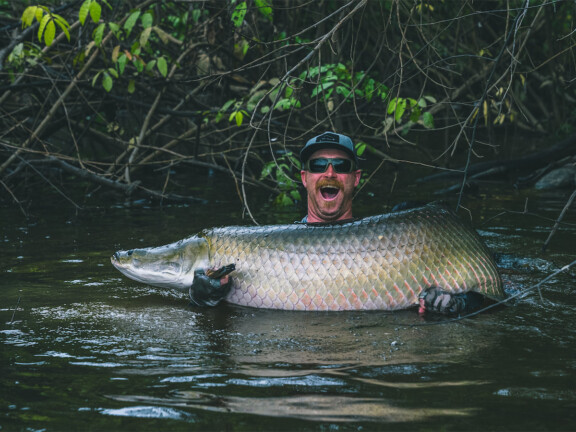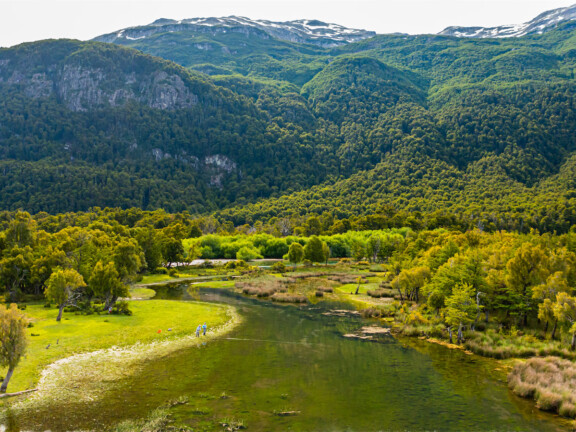The Amazon River basin is a seemingly endless maze of flooded jungles and shifting channels. The tannin-stained waters slowly seep from one channel to the next—often filtering into slow, tranquil lagoons. In the main river, peacock bass will hold tight to flooded trees, stumps, sandbars, and points—just waiting for an unsuspecting creature to venture too close. In the lagoons, you will often encounter large, spawning fish as well as schools of smaller juveniles chasing baitfish. Pairs of spawning fish are often seen in shallow water protecting their nests from predation. Individuals are also commonly found in the middle of the lagoons watching over fry as they forage. These fish will aggressively protect their young and attack any fly or lure that gets too close.
Anglers have a chance to catch a number of peacock bass species including the paca/three bar (Cichla temensis), butterfly (Cichla Orinocensis), and popoca (Cichla Monoculus). Most peacocks are in the 5- to10-pound range. Fish over 10 pounds are very common, and anglers should expect a handful of shots at fish larger than 20 pounds during the week. On an average day, an average fly angler can expect to catch 20 to 40 fish. In addition to the different varieties of peacocks, anglers will catch a number of other interesting species including arowana, piranha, traira/wolf fish, jacunda, redtail catfish, bicuda/sword fish, and the massive piraiba.
The difference between anglers that catch some fish and those that catch lots of fish is the ability to present a fly as close to cover as possible. Anglers skilled enough (and brave enough) to sling their flies deep into the flooded trees, will catch many more (and larger) fish than those who fish more conservatively.
Because peacock bass are highly visual feeders, fly fishing is an excellent way to catch them. Large streamers fished on an intermediate or slow-sinking fly line usually produce more and bigger peacocks. Peacock bass will also readily feed on the surface. A good rule of thumb for poppers and other topwater flies is “the noisier the better!”
Boats
With the water levels in the Amazon constantly changing, your ability to gain access to the best fishing spots is directly related to your mobility. You must be able to slide over sandbars and logs or squeeze between trees to get to many of the untouched lagoons. The well-maintained 21-foot custom bass boats were specifically designed for this type of jungle fishing. With a flat bottom and narrow beam, they will allow you and your guide to get to the toughest fish.
Tackle
Fly fishing and conventional tackle is available for use as part of your package. Here are some suggestions if you would like to bring your own tackle:
Fly rods from 8- to 10-weight are perfect for just about anything you are likely to encounter. Large-arbor fly reels with a good drag and plenty of line capacity are a necessity as these fish will make a mad dash for heavy cover as soon as they are hooked. Floating and intermediate fly lines will cover just about every fishing situation you will encounter. Leaders should be constructed of stiff monofilament or fluorocarbon and taper down to 30- to 40-pound test.
With such an incredible amount and variety of food in the water, peacock bass are generally not very picky. They will eat a wide variety of flies. Large baitfish streamers (4 to 6 inches) tied on strong 2/0 to 5/0 hooks such as Lefty’s Deceivers, Game Changers, Kinky Muddlers, and Clouser Minnows are excellent choices. Bright colors such as white, yellow, pink, chartreuse, and orange will show up very well in the tannin-stained water. Noisy topwater flies such as Dahlberg Divers, poppers, and crease flies can draw explosive strikes as well. Make sure you arrive with plenty of flies—especially flies tied with more durable synthetic materials because piranhas and other toothy fishes can destroy a fly in seconds.
